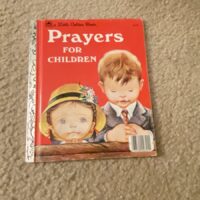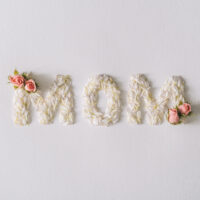Coming from a big extended family, who now have branched off with their family units, we have many little kids running around. With all the new additions to our family, I wondered, what is my cousin’s child to me?
Your cousin’s child is referred to as your first cousin once removed.
While it may sound a little odd, it is the official way to define your relationship.
The relationship between a family member is dependant on how many generations you are away from one another. The branches of a family tree can quickly start to go in different directions, so it’s always fun to know exactly how you are related to someone.
Why Call it “Once Removed?”
Simply put, the once removed part of the title refers to how many generations away the child is from you. Your cousin’s child is only one generation away from you, and therefore they are a first cousin once removed.
You probably won’t be addressing any birthday cards this way, but if you are mapping out your genealogy chart, you should title it “first cousin once removed.”
What Should You Call Your Cousin’s Child?
You likely won’t call your cousin’s child by the technical term, so what’s the best way to refer to them? Some people will call them their niece or nephew, although the child isn’t from a brother or sister. If you don’t feel comfortable calling them by those terms, calling them a cousin is simple enough.
Think of how you would introduce them to someone. Let’s say you have a cousin, Mary, and she has a son Liam. Would you say, “these are my cousins Mary and Liam?” It seems a little strange since there is a considerable age difference between the two.
If I were in that situation, I likely would say, “this is my cousin Mary and her son Liam.” Easy as that. However, if I were introducing Liam to someone, I would call him my cousin.
What Should They Call You?
If you are an adult and your cousin’s child is a young child, you may wonder what they should call you? While some people reserve “aunt” and “uncle” for their actual nieces and nephews, there is nothing wrong with your cousin’s child calling you “Aunt so-and-so.”
Young kids can have a hard time understanding relationships between their extended family members. At least, I know mine do. When kids are young, it is simple enough to refer to each other as cousins. As they get older, you can change the title if you feel you have a closer relationship.
I am fortunate to be close with my cousins and their children, but I still refer to them as my cousins. For me, it’s easier to group everyone as a cousin, regardless of whether they are a first cousin or a first cousin once removed.
Consider Your Relationship
Some people are very close to their cousins and consider them more like siblings. In this case, it won’t seem strange to refer to their children as your niece or nephew. However, if you don’t see your cousins often or didn’t grow up, it likely will be strange to call them something typically reserved for your sibling’s children.
I am very close to my first cousins and love their children dearly, but I wouldn’t think to have them call me “Aunt Kelly.” I use that for my actual nieces and nephews.
If you are looking for a fun way to display your family tree, I like the Family Tree Picture Collage. It makes for a beautiful way to show off your family. You can also get creative and have your kids make their family tree chart. It’s a fun way to see how everyone is related and help the younger kids understand relationships better.
They Are Not Your Second Cousin
While it may make sense for your cousin’s child to be considered your second cousin, they are not. Second cousins are actually the children of two first cousins.
Sound confusing? Let’s say Annie and Claire are first cousins. They each have their own child. Those children are now considered second cousins.
Annie would be first cousins once removed with Claire’s child and vice versa.
In addition, think of it this way. First cousins share the same grandparents and second cousins share the same set of great-grandparents.
Once you get to second cousins and beyond, there’s a good chance there is a group of people you’ve never met. There’s probably more of an opportunity to see your first cousin’s child than a second cousin. While I know a handful of my second cousins, I certainly see the children of my first cousins more often.
Finally, embrace the relationship regardless of which generation they fall into. Whether they are first, second, or once removed from you, cousins share such a special bond. Take the opportunity to get to know them and develop a relationship. Even consider starting a game night with a fun board game as a way to bond.
What is My Parent’s Cousin to Me?
If you have some extra branches on your family tree to fill out, you can expand even further from your first and second cousins. So, your mom talks about growing up with her cousins, but what is their relationship with you?
They are your first cousin once removed as well. Say what? Isn’t that what my cousin’s child is to me? Yes, it is. I’m glad you were listening.
Remember, the “once removed” part refers to how many generations away they are from you. You may be from different generations, but both of those family members fall into the same category.
Final Thoughts
If you are mapping out your family tree, you likely have asked yourself, “what is my cousin’s child to me?” While the name may sound a little complicated, they are your first cousin once removed.
At the end of the day, you can call them your cousin, niece, nephew, little buddy, whatever sounds good to you. But try to refrain from addressing anything to your first cousin once removed.







